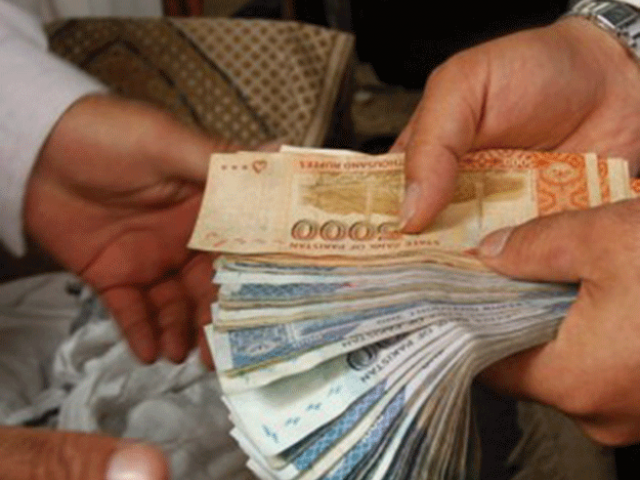Revenue collection up a little, tax hike up a lot
Increase in GST on petroleum products comes amid failure to meet tax target

PHOTO: NEWSPAKISTAN
For the second successive month, the government increased tax rates on petroleum products by up to 50%, after collection numbers for July and August fell short of the target by around Rs35 billion.
The second mini-budget in as many months will help the Federal Board of Revenue (FBR) raise an additional Rs10 billion amid revenue leakages in the tax machinery. The need for the second mini-budget rose after the FBR provisionally collected Rs330 billion in taxes in July-August against a target of Rs365 billion.
Due to a growing gap between tax target and collection, Finance Minister Ishaq Dar also could not honour his promise of returning Rs30 billion refunds to the textile industry. He had given his word to All Pakistan Textile Mills Association that genuine refunds would be cleared by the end of August.
The FBR issued only Rs5 billion refunds in August, which was even less than the amount paid in the comparative month last year, according to officials.
 DESIGN: NABIL AHMED
DESIGN: NABIL AHMEDIdentifying the problem
For August, the FBR had set a tax target of Rs199.3 billion but its provisional collection stood at only Rs181 billion, according to the FBR officials. The collection was just 1.2% up from the collection in August 2014 when it amounted to Rs179 billion. The FBR needs a growth rate of 20% to achieve the Rs3.104-trillion annual target.
The officials said that August collection may increase by an additional Rs5 billion once the final figures are compiled. The Rs35-billion shortfall in just two months suggests that the annual tax target is unachievable, which will make the current fiscal year the third year in a row when the PML-N government would be unable to meet its budgetary targets.
Falling oil prices add fuel to the fire
Meanwhile, in a bid to increase revenue amid falling oil prices, the federal government further increased sales tax rates in the range of 23% to 50%, putting maximum burden on the poor- and middle-income groups.
The government passed on less than the half of the proposed reduction in oil prices to consumers. The government has implemented Rs238.4 billon in additional taxes with effect from July 1 and two mini-budgets are over and above that amount.

GST on various items
The government increased the General Sales Tax (GST) on high speed diesel, used in public transport, by over 23%. As against the earlier rate of 36.5%, the new GST rate on HSD will be 45%, the highest ever sales tax rate in the history of the country on any consumer product, showed a notification issued by the FBR.
According to the notification, the government increased sales tax rate on motor spirit to 25.5% against the existing GST rate of 20%.
The GST rate on high octane blending component, which is used mostly in luxury vehicles, was increased to 24% from the existing 17%, which is still the lowest rate.
The GST rate on kerosene oil was increased to 30%, increasing the tax burden by 50%, the highest raise. The GST rate on light diesel oil was increased to 29.5% from the previous rate of 20%.
The mini-budget has been introduced in a bid to meet conditions of the International Monetary Fund. The government can change tax rates through administrative orders only in cases where it has to fulfill obligations of international lenders and meet emergency expenditure needs.
Like the previous month, the government increased the tax rates without seeking approval of the Economic Coordination Committee of the Cabinet.
The growing shortfall in tax revenues will make it difficult for the government to adhere to overall budget deficit target of 4.3% of Gross Domestic Product or Rs1.318 trillion for the current fiscal year, according to tax experts.
Published in The Express Tribune, September 1st, 2015.
Like Business on Facebook, follow @TribuneBiz on Twitter to stay informed and join in the conversation.


















COMMENTS
Comments are moderated and generally will be posted if they are on-topic and not abusive.
For more information, please see our Comments FAQ